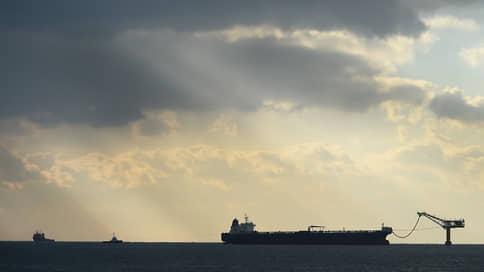Ceiling with a hole – Newspaper Kommersant No. 67 (7512) dated 04/18/2023
[ad_1]

For the first time, US authorities have officially acknowledged the fact that Russian oil supplies to ESPO from the Far East are above the price ceiling set by the West. The US Treasury has recommended that US companies closely monitor the AIS data of sea tankers so that they do not unknowingly become participants in ceiling bypass schemes. At the same time, lawyers note, so far we are only talking about a warning and specific cases of circumventing sanctions have not been mentioned. There is little the US can do to influence ESPO flows, as it is mostly bought by China.
The Office of Foreign Assets Control (OFAC) has issued a warning to US citizens about “possible evasion” of the terms of the Russian oil price ceiling.
For the first time, a division of the US Department of the Treasury acknowledged the existence of “fraudulent practices” due to which Russian ESPO oil, exported via the ESPO pipeline to the Far East, is actually sold above the established ceiling.
The EU and G7 countries, which include the United States, introduced a cap on Russian oil prices at $60 per barrel in December last year. They banned their insurance companies, ship owners, brokers from providing services for transactions with Russian oil, if they are carried out at a price above the ceiling. So far, the US authorities and most Western experts, including the IEA, have argued that the ceiling is generally respected.
The document does not contain information on specific cases of violation of the ceiling and sanctions for its circumvention. OFAC indicates that it is aware that Russian oil may be trading above the marginal price and US service providers may be involved in such transactions. “These US service providers may not be aware that they provide services related to Russian oil purchased at a price higher than the ceiling, as non-US citizens involved in the export may have provided incomplete or false documentation or used other methods deceit,” OFAC warned.
In particular, according to OFAC, some tankers may manipulate the data provided by their automatic identification systems (AIS) to hide the fact of calling at Russian ports in the Far East, as well as use ship-to-ship transshipment of raw materials to hide the origin of Russian oil. US officials, OFAC believes, should view AIS manipulation, which masks a tanker’s port of call in the Russian Federation, as evidence of a possible oil price ceiling evasion.
In addition, OFAC has warned oil traders and commodity brokers that transportation, freight, customs and insurance costs are billed separately from the price of Russian oil and paid at commercially reasonable rates.
A counterparty’s failure to provide documentation showing that Russian oil or Russian oil products were purchased at a price below the ceiling should be seen as a clear indication of possible price cap evasion, OFAC said.
In fact, this is an instruction that American companies can use in order to prevent their participation in deals to circumvent sanctions and subsequently not be held liable for their violation, says Kristina Ikayeva, a lawyer in the commercial practice of the law firm Kosenkov and Suvorov. The document is riddled with phrases like “could have been provided”, “may have been provided”, “could not have known”, says Ilya Zharsky, managing partner of the Veta expert group, noting that this is still a warning. According to Ekaterina Makeeva, a partner at A-PRO Law Offices, “OFAC is likely to pay more attention to whistleblowing practices, encouraging supply chain participants to record information about locations and delivery details, and then look for ways to gain access to this information.”
It is unclear to what extent potential US sanctions on Russian oil traders could affect ESPO oil flows, given that China is the main market for it (for both offshore and pipeline shipments). The segment most vulnerable to sanctions remains maritime transportation, since the vast majority of tankers in the world are insured and reinsured by Western companies. According to Kommersant’s interlocutors in the industry, theoretically, sanctions pressure could increase the ESPO discount to Brent, but it is unlikely to affect the volume of deliveries.
[ad_2]
Source link





